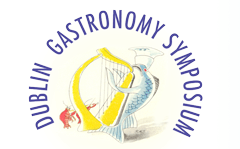Start Date
28-5-2020 7:30 PM
End Date
5-2020 7:45 PM
Description
Locative food releases food from the hegemony of the restaurant, its rituals, codes, performative narratives, complexities, paraphernalia, processes, and entry fees; taking food out into a wider world, to locations that function along with the food to create provocations of the senses and a way of making us discern gastronomic possibilities afresh. This paper looks at Heston Blumenthal’s Sound of the Sea as the epitome of restaurant complexity; Roland Barthes’ experiences and responses to food in Japan in the late 1960s; Kenya Hara’s concepts of design and the design ethos underpinning MUJI; a brief overview of the picnic; and my own developing simple conceptions of locative food. The outcomes of my ongoing research in locative food are both theoretical and realised artefacts, with one potential outcome being that the future of food could be a peach (albeit a very special peach).
DOI
https://doi.org/10.21427/d669-4587
Included in
Locative Food: The Future of Food Is a Peach
Locative food releases food from the hegemony of the restaurant, its rituals, codes, performative narratives, complexities, paraphernalia, processes, and entry fees; taking food out into a wider world, to locations that function along with the food to create provocations of the senses and a way of making us discern gastronomic possibilities afresh. This paper looks at Heston Blumenthal’s Sound of the Sea as the epitome of restaurant complexity; Roland Barthes’ experiences and responses to food in Japan in the late 1960s; Kenya Hara’s concepts of design and the design ethos underpinning MUJI; a brief overview of the picnic; and my own developing simple conceptions of locative food. The outcomes of my ongoing research in locative food are both theoretical and realised artefacts, with one potential outcome being that the future of food could be a peach (albeit a very special peach).
